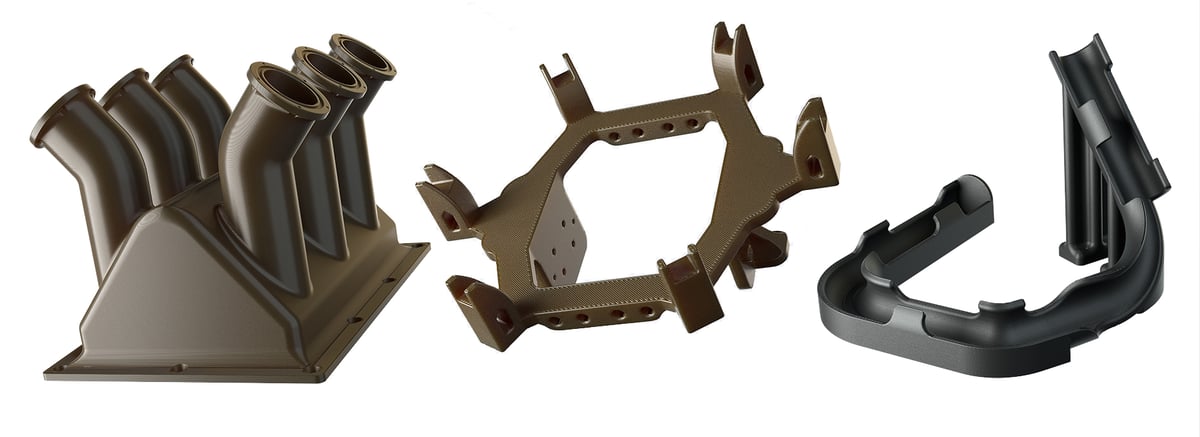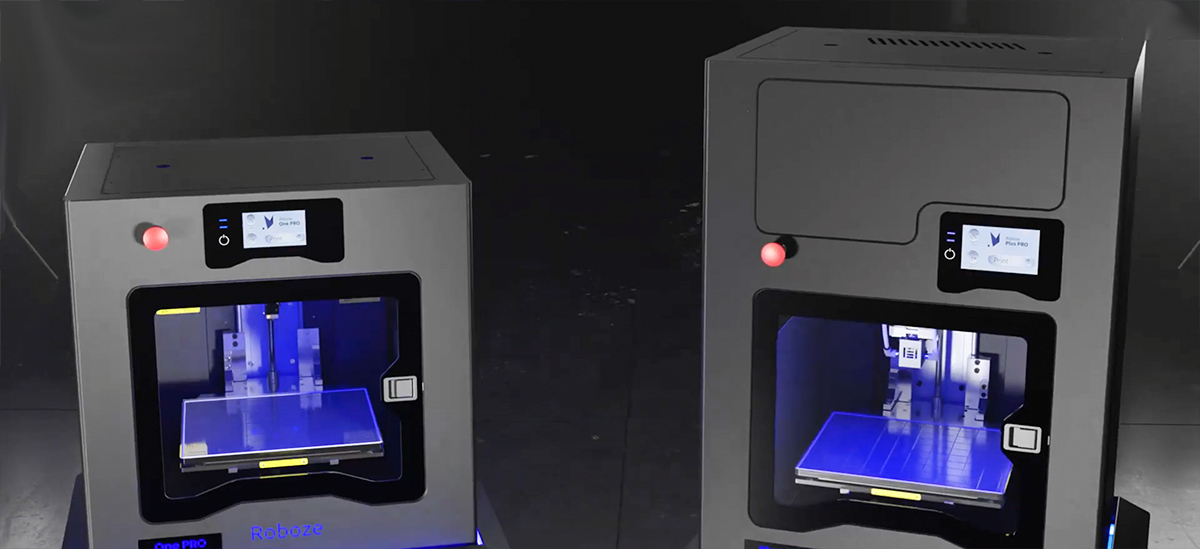Roboze, the Italian maker of industrial 3D printers with an office in Texas, wants you to ditch the cast aluminum and CNCed stainless steel you’ve been using to make your shop tools, molds, fixtures, and spare parts. 3D printing with engineering-grade polymers, such as carbon-fiber Nylon and PEKK, on the company’s two new single-extruder, high-temperature FDM 3D printers is faster, easier, and more versatile, they say.
The two new machines – the One Pro and Plus Pro – aim to shorten the prototyping and production phase of small components and high-performance tools with a host of new features.
Particularly interesting is the new integration of the Pro printers with the Roboze proprietary slicing software called Prometheus. New profile settings within Prometheus enable more click-and-print manufacturing and less manual settings. The UltraFast print profile within the slicer accelerates the printing speed when printing with Carbon PA and the Ultra-PLA, the company says.
Prometheus’ UltraQuality profile results in extremely detailed parts when printing with PEEK, Carbon PEEK, and Roboze’s new ToolingX CF.


Print Strong Like Metal
On the materials front, Roboze added two new filaments to its family of polymers and composites: Roboze PEKK and ToolingX CF. Roboze printers are not strictly limited to Roboze materials, but the software is specifically tuned to deliver the best performance when using the company’s filament.
Optimized for easy printing, the Roboze PEKK produces parts with flame retardant properties, high thermal, mechanical and chemical resistance. Roboze ToolingX CF is a thermoplastic composite material loaded with carbon fiber. It’s lightweight and resists organic acids, gasoline, oils, such as engine oil, brake fluids, and coolants making it suitable for a range of manufacturing tools.
Not just a tool maker, Roboze says the Pro printers can accelerate the research and development of new applications for your business. For example, with reliable and repeatable 3D printing, you could digitize your spare part warehouse for on-demand production.
Both of the new printers in the Pro series integrate a high-temperature filament drying device to prepare the materials before printing. And if the Pro printers look a bit familiar, that’s because they are reengineered version of the companies older One Xtreme and One+400 Xtreme 3D printers.
Roboze Tech
Both new printers feature much of the Roboze technology available on the company’s full line of printers, including the patented Beltless System eliminates the rubber belts typically used in FDM 3D printers and introduces a mechatronic movement with gears. This aligns with the typical kinematics of industrial machine tools, bringing 3D printing to a higher level of accuracy and repeatability, the company says.
All Roboze industrial FDM 3D printers feature technology dedicated to temperature management throughout the printing process. The thermal fusion of the layers is the result of extrusion temperatures above 350°C inside a working chamber heated up to 150°C.
As part of a manufacturing ecosystem, Roboze printers communicate with other machines within the production lines and managing the process almost completely remotely, reducing manual operations, integrating remote communication and display systems data for analysis and control of the printing process.
Roboze 3D printers offer a total remote monitoring level, reducing intervention times. All the operations and process parameters are also stored, thus certifying every single part produced.
The Pro series are the company’s smallest FDM printers. From this starting point, the company offers its Production series: the Argo 350, Argo 500, and Argo 1000.
License: The text of "Roboze Aims to Accelerate Production of Industrial Tools With New 3D Printers" by All3DP Pro is licensed under a Creative Commons Attribution 4.0 International License.
